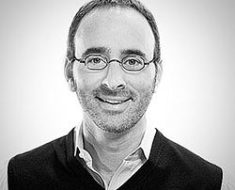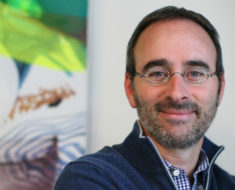Eric Lefkofsky, founder and CEO of Tempus, announced that Tempus would be in collaboration with Feist-Weiller Cancer Center on April 29. The technology company and the cancer center will begin research that is intended to help patients diagnosed with brain cancer have better outcomes. Tempus is a company that collects and analyzes molecular and clinical data.
Tempus performs genomic testing that analyzes DNA, RNA and proteomic data. This allows physicians to know their patient’s tumors at a molecular level. This, in turn, makes it possible for physicians to put a treatment plan together that is tailored specifically for each individual patient. The company also works on a larger scale by organizing lab results, radiology scans, clinical notes and pathology images so that the physician can further understand each case’s clinical context.
Tempus has innumerable sources of clinical and molecular data that support physicians efforts to identify the most effective treatment for their patients. The data also enables physicians to examine their patients’ molecular profiles and determine the most relevant insights through machine-learning algorithms and advanced analytics. With the help of artificial intelligence, Eric believes Tempus is on its way to helping cancer patients live longer and healthier lives.
To further the goals of these companies, Tempus is going to work directly with Maria-Magdalena Georgescu, M.D., Ph.D. Dr. Georgescu has been studying patients who have been diagnosed with glioblastoma. She also studies those who have been diagnosed with metastatic brain disease and are not likely to respond to more conventional therapies because they have also been diagnosed with NLCLC or breast cancer. Glioblastoma is the most common brain tumor in the population today, and it is very deadly.
Tempus is going to be in charge of clinical data structuring and genomic sequencing for Dr. Georgescu’s patients. Feist-Weiller Cancer Center is located at LSU Health Shreveport, and this will be where the de-identified clinical data will be gathered so that it can be matched to the before mentioned molecular data. Tempus will be able to analyze these data sets with machine learning and advanced bioinformatics to find patterns that may be relevant to how these patients will respond to therapy.
After a glioblastoma or a DIPG has begun to grow, it usually increases rapidly and invades healthy portions of the brain quickly as well. The tumor increases so fast that physicians do not have many options for treatment. Adults and children diagnosed with these tumors have approximately 15 months to live. Current treatments are not doing enough to combat these tumors, so physicians need a comprehensive data set so that they can link patient outcomes to the patients’ characteristics. Then, they will be able to find a better way to treat these tumors.
Dr. Georgescu stated that her mission and that of her colleagues is to minimize the impact that cancer is having on her community. The partnership with Tempus will make it possible for researchers to have tools and analytics that will make it easier for everyone to understand their patients’ molecular tumors’ composition. They will also learn how their patients’ genomic profiles relate to what can be targeted with therapy, the response they can have with therapy and the outcome of the chosen therapy.
Tempus will continue to work with medical centers like LSU Health Shreveport & the Feist-Weiller Cancer Center to increase their knowledge of brain cancer. They hope to do this by discovering patterns of clinical significance that will lead them toward the best outcomes for people diagnosed with these horrific diseases.
Feist-Weiller Cancer Center – LSU Health Shreveport
The Feist-Weiller Cancer Center opened in 1997. It has become an extensive cancer center where the faculty perform research and provide training for future cancer care providers. This center focuses on underserved communities in the area, so these patients have access to National Cancer Institute clinical research trials. The center also conducts a mobile unit that attends to the rural population.
Tempus’ Beginnings
Eric Lefkofsky saw a need, and he sought to fulfill it. As he accompanied a family member to a clinical setting where the individual was being treated for cancer, he noticed how important it was for physicians to have data that could help them more effectively treat patients and learn from patients that came before.
Tempus has subsequently built a team of experts made up of engineers, bioinformaticians, computational biologists, scientists, physicians and others, along with a platform that makes it possible for physicians to make real-time, data-driven decisions. The platform now touches more than one in four cancer patients.
Dil Bole Oberoi





